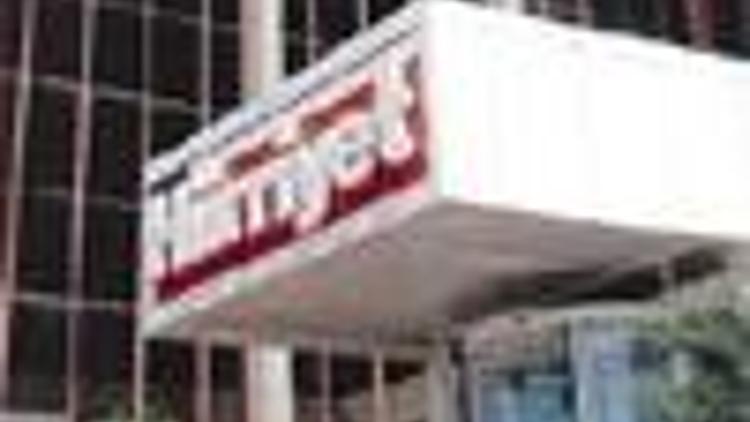Int’l media keeps eye on Doğan case
Güncelleme Tarihi:

Hürriyet Daily News
Oluşturulma Tarihi: Şubat 25, 2009 00:003dk okuma
ISTANBUL - German daily Die Welt says the fine was meant to silence the Doğan Group and it would eventually lead to an end of ’the media criticizing the government.’ The article retraced the friction between the media and gov’t
As Turkey’s largest media group renewed its defense Monday against the record-breaking half-billion-dollar levy imposed by the Treasury, the foreign press has interpreted the incident as another round in the ongoing war between the government and media in Turkey.
German daily Die Welt said the fine was meant to silence the Doğan Group and it would eventually lead to an end of "the media criticizing the government." The article by Boris Kalkony retraced the friction between the media and government to 2006, when Doğan group newspapers published articles on Islamic holdings that were collecting money from Turks living in Europe. "In the article there were claims that the collected money was siphoned to some politicians and Islamic organizations. Then came the articles about the Lighthouse charity organization operating in Germany. The embezzlement of the organization was proven. Several names from Islamic circles in Turkey were mentioned during the hearings and the Doğan group reported them. Erdoğan acted upon this and called for a boycott against the Doğan group," Die Welt said.
Die Welt also claimed that in recent years the balance of power in the Turkish media had dramatically changed. "Names close to the government bought newspapers and television channels. The biggest example was the sale of Sabah-ATV to the Çalık group. The president of the company is Berat Albayrak, who is the son-in-law of Erdoğan," it said.
Previous disagreements
"Doğan and the Turkish government have had disagreements before, including a sharp reaction from the prime minister last September when Doğan newspapers ran a story on a German court's conviction of three men for transferring money from the Lighthouse charity to non-charitable causes," the AFP agency reported.
Noting that the Doğan group's media outlets had been among those who were critical of the ruling Justice and Development Party, or AKP, fearing the Islamist-rooted government was trying to undermine the secular basis of Turkish society, AFP said Turkish press associations also saw the tax offensive against the Doğan group as further evidence of the AKP's determination to punish those media outlets that questioned its vision of the world.
"Certainly Erdogan is not afraid of controversy and has often been criticized in the past for his belligerent approach to opponents and the media, both at home and abroad. So far as the papers hostile to his party's policies are concerned, he has made his feelings clear, calling for voters to boycott them," it said.
Erdoğan insisted that the tax fine against the Doğan group was perfectly legal and had nothing to do with him, said AFP, recalling, however, Erdoğan told supporters over the weekend at a rally in the southeastern city of Adıyaman: "Liberty of the press cannot be used to defame."
Speaking to the Wall Street Journal on Monday, Aydın Doğan, chairman of Doğan Holding, which also has interests in energy and the property sector, said the levy came from "political pressure."
German daily Die Welt said the fine was meant to silence the Doğan Group and it would eventually lead to an end of "the media criticizing the government." The article by Boris Kalkony retraced the friction between the media and government to 2006, when Doğan group newspapers published articles on Islamic holdings that were collecting money from Turks living in Europe. "In the article there were claims that the collected money was siphoned to some politicians and Islamic organizations. Then came the articles about the Lighthouse charity organization operating in Germany. The embezzlement of the organization was proven. Several names from Islamic circles in Turkey were mentioned during the hearings and the Doğan group reported them. Erdoğan acted upon this and called for a boycott against the Doğan group," Die Welt said.
Die Welt also claimed that in recent years the balance of power in the Turkish media had dramatically changed. "Names close to the government bought newspapers and television channels. The biggest example was the sale of Sabah-ATV to the Çalık group. The president of the company is Berat Albayrak, who is the son-in-law of Erdoğan," it said.
Previous disagreements
"Doğan and the Turkish government have had disagreements before, including a sharp reaction from the prime minister last September when Doğan newspapers ran a story on a German court's conviction of three men for transferring money from the Lighthouse charity to non-charitable causes," the AFP agency reported.
Noting that the Doğan group's media outlets had been among those who were critical of the ruling Justice and Development Party, or AKP, fearing the Islamist-rooted government was trying to undermine the secular basis of Turkish society, AFP said Turkish press associations also saw the tax offensive against the Doğan group as further evidence of the AKP's determination to punish those media outlets that questioned its vision of the world.
"Certainly Erdogan is not afraid of controversy and has often been criticized in the past for his belligerent approach to opponents and the media, both at home and abroad. So far as the papers hostile to his party's policies are concerned, he has made his feelings clear, calling for voters to boycott them," it said.
Erdoğan insisted that the tax fine against the Doğan group was perfectly legal and had nothing to do with him, said AFP, recalling, however, Erdoğan told supporters over the weekend at a rally in the southeastern city of Adıyaman: "Liberty of the press cannot be used to defame."
Speaking to the Wall Street Journal on Monday, Aydın Doğan, chairman of Doğan Holding, which also has interests in energy and the property sector, said the levy came from "political pressure."

